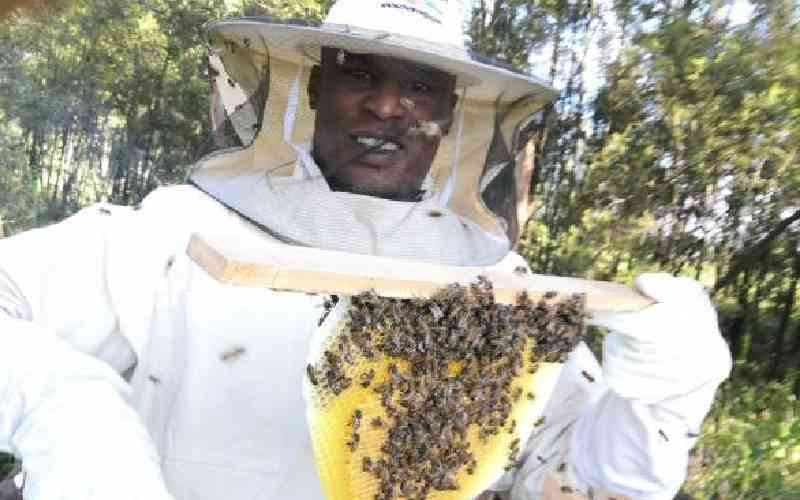×
The Standard e-Paper
Smart Minds Choose Us

A section of beekeepers has protested after Tharaka Nithi Governor Muthomi Njuki's ban on beekeeping in forested hills, to conserve the environment.
Mr Njuki issued two Executive Orders to conserve natural forests, with the ban on beekeeping in the hills evoking protests by residents who have placed a large number of bee hives in the hills.